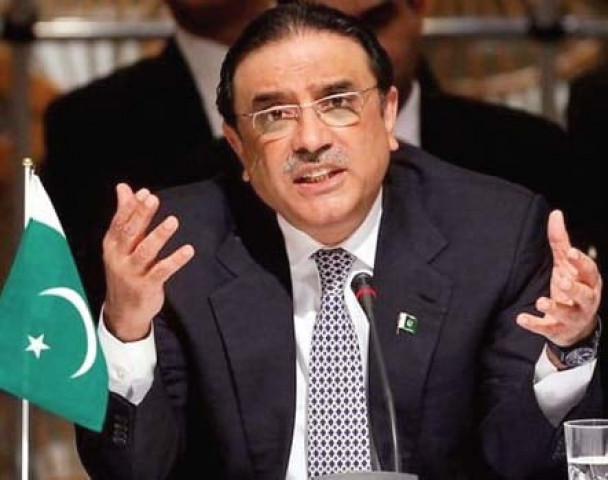WikiLeaks: ‘Of imperialist designs and jingoistic sovereignty’
Cables reveal details of high-level meetings, complexities of managing relationship between Islamabad and Washington.

High-level meetings are difficult to scoop, especially those between top officials and visiting foreign dignitaries. Press releases are rife with platitudes, shrouded in diplomatic niceties and convey little substantive material, with the information vacuum fueling far-right conspiracies that our leaders are ‘American agents’, and plot against national interest behind closed doors.
If recently-released American diplomatic cables are anything to go by, the reality is far less sinister, or exciting.
Plotting Peoples President?
Shielded as he may be behind his protocol and barricades on top of the hill in Islamabad, President Zardari did convey the concerns of the ‘average’ Pakistani to visiting Senator John Kerry, according to a ‘secret’ cable dated February 23, 2010.
The president voiced Pakistanis’ “continued suspicion of India,” according to the cable.
“India had increased its military spending by 30 per cent this year and [President Zardari] described this as a direct threat to Pakistan,” the cable stated. “When Kerry pointed out the Chinese threat to India, Zardari responded that Indian tanks cannot operate in the Chinese border region and could only be intended for an attack on Pakistan.”
“Capability creates fear,” the cable quoted Zardari as saying.
On the war against terrorism front, the president agreed that the government “needed to rebuild the conflict-affected areas as soon as possible,” but said that “the war went beyond these areas.”
“When a US soldier leaves Afghanistan, he no longer fears for his life; when a Pakistani soldier leaves the conflict areas, however, he has to worry that militants might target him in his home in Punjab or Sindh,” the cable quoted Zardari as explaining to Kerry.
The president also “complained that Reconstruction Opportunity Zones were too confined and requested broader trade concessions for Pakistan.”
The only ‘plotting’ the president appeared to do was to ask the US to “weigh in with the International Monetary Fund against further electricity tariff increases” so he could “show his people that he has something to offer them.”
Ambassador Patterson translated this into request for “‘a deal’ with the US to strengthen his political position.”
Thwarting imperialist designs, and your wellbeing
Visiting officials, such as FBI Director Robert Mueller, are given a ‘scene setter’ – an on-the-ground situation assessment as seen from American eyes – as evidenced in a ‘secret’ cable dated February 22, 2010.
While the scene setter helps bridge the gap between what we think the Americans think of Pakistan and what they publicly state, it also gives Pakistanis an insight into how they may be shooting themselves in the foot under the intoxication of jingoistic ideals of sovereignty.
For starters, the US does believe and tells its senior officials that Pakistan has “suffered greater military, law enforcement, and civilian casualties in fighting extremism and terrorism than almost any other country.”
However, despite all the stated kumbaya for its ally, Pakistan’s “military and intelligence establishment” frustrated American authorities by “holding up the issuance and renewal of Pakistani visas for permanent embassy staff … denying import permits for armoured vehicles for embassy use; sabotaging [their] contract with DynCorp International to provide enhanced protective support for Consulate General Peshawar personnel … putting up roadblocks for our acquiring additional land for the embassy’s expansion; and harassing embassy personnel by stopping and detaining embassy vehicles.”
While most have heralded the above as victory for Pakistan’s sovereignty, “the housing shortage [on embassy premises], [Pakistan’s] reluctance to provide customs clearance for equipment (including armoured vehicles) and visas to incoming US staff is resulting in critical shortages of both supplies and personnel” resulting in the US embassy and consulates in Pakistan “unable to host visitors at the current level,” according to a cable dated December 15, 2009.
The visitors are not all covert Central Intelligence Agency agents. These are mostly congressional delegations whose visits have garnered a “positive effect on appropriations for Pakistan, for both civilian and military assistance.”
Fourth cup of tea?
While Pakistanis may be hospitable, the American embassy in Islamabad realised they were going overboard with the meetings, especially with top officials. “During a recent Congressional recess, we had nine senators in Islamabad in one day,” the cable revealed.
As considerate hosts, however, Pakistani officials “privately” pointed out to the Americans that “it would be difficult to have an official meeting in Washington on a Sunday, yet here we request Sunday meetings all the time” in addition to meetings “on the Islamic equivalents of Christmas and Easter.”
“The message that this not-so-subtly conveys is that Pakistan is a third-rate, poor country dependent on the United States and ‘if we are giving them billions of dollars, they can surely meet with us on Sunday,’” the cable concluded.
Published in The Express Tribune, September 5th, 2011.



















COMMENTS
Comments are moderated and generally will be posted if they are on-topic and not abusive.
For more information, please see our Comments FAQ